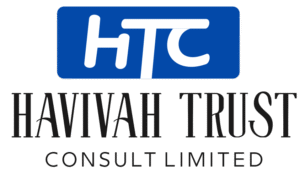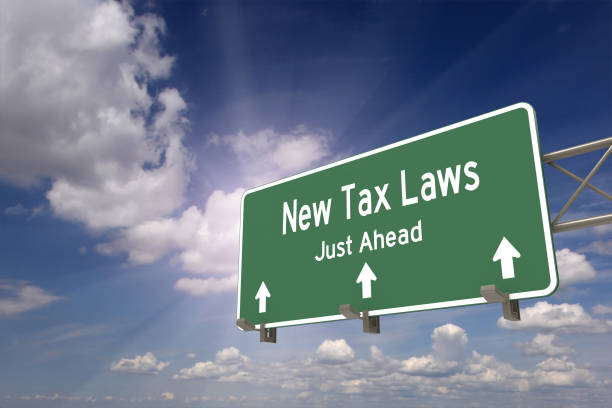TAX LAWS FOR DUMMIES
“What Nigerians Really Need to Know About the New Tax Laws (Coming Jan 2026)”

The big elephant in the room is How will this tax law affect me?
It is high time Nigerians stop leaving things to “What will be, will be”. Let’s stop allowing things to happen to us, and all we have are mere speculations. It is time we know exactly what is going on, so that we know what to fight and what to push forward.
And with the high rate of misinformation on social media about these new tax laws, this article is highly necessary. Because without a clear, simple breakdown coming from real policy sources, many Nigerians are confused, worried, or just misinformed, thinking the government is simply lying to us.
You must know that taxes aren’t just about paying the government: they shape how much money you actually take home, what the poor pay (or don’t), and how the country makes certain services available for the masses, like healthcare, education, good roads, etc. Getting the facts right isn’t just for experts; it’s for you, your family, and your future.
What Exactly Is Changing?
In June 2025, President Bola Tinubu signed four major tax reform bills into law. These take effect on January 1, 2026. (Tax News) The goal? To modernize, simplify, and make Nigeria’s tax system fairer. (EY)
Here’s what’s changing for people like you whether you’re a salaried worker, a content creator, a gig worker, or self-employed.
Key Changes That Affect You
- New Income Tax Bands + Relief for Low Earners
- If you earn ₦800,000 or less per year, you pay no personal income tax under the new law. (Baker Tilly Nigeria)
- That’s a major shift: this tax-free threshold protects many of Nigeria’s lower-income earners.
- For higher incomes, the tax rates now go from 0% up to 25%, depending on how much you make.
- For example (as reported), the brackets are roughly:
- Up to ₦800,000 → 0% (Ports & Borders)
- ₦800,001 – ~₦3,000,000 → ~15%
- ₦3,000,001 – ~₦12,000,000 → ~18%
- ₦12,000,001 – ~₦25,000,000 → ~21%
- ₦25,000,001 – ~₦50,000,000 → ~23% (Ports & Borders)
- Above ₦50,000,000 → ~25% (Baker Tilly Nigeria)
- For example (as reported), the brackets are roughly:
- Bye-bye, Consolidated Relief Allowance (CRA)
- Compensation & Gratuity
- If you receive compensation (for example, after a job loss), the tax-exempt threshold goes up from ₦10 million to ₦50 million.
- However, gratuity (that lump sum some people get when they leave a job) is now taxable under the new rules.
- Capital Gains (Selling Assets, Investments, etc.)
- Gains from selling assets (including digital/virtual assets) are now taxed under the personal income tax system, not separately.
- That means, depending on how much you make overall, your capital gain will be taxed up to 25%. (Baker Tilly Nigeria)
- There are some exemptions: for example, for your private residence, or for certain low-value items, and up to two personal vehicles.
- Presumptive Tax for the Informal Sector
- For people who don’t have formal income records (like many small business owners, traders, or gig workers), the law introduces presumptive taxation.
- The Minister of Finance will set the framework, meaning there will be a way to estimate and tax income even if exact figures are hard to verify.
- New Residency Rules
- The law clarifies who is a resident taxpayer: you’re considered resident if you spend at least 183 days in Nigeria, or maintain a permanent home or significant economic/family ties.
- If you’re a resident, you’ll be taxed on your worldwide income.
- If you’re non-resident, only the income you generate from Nigeria is taxed.
- Benefits in Kind (Perks from Work)
- Things like free housing from your employer now have more precise rules for how they’re valued:
- Rent-free accommodation: capped at 20% of gross income.
- Other employer-provided assets: capped too (e.g., 5% of cost), so it’s more predictable.
- Things like free housing from your employer now have more precise rules for how they’re valued:
- Institutional & Administrative Reforms
- A new national tax agency, the Nigeria Revenue Service (NRS), replaces the old Federal Inland Revenue Service (FIRS). (Pulse Nigeria)
- There will be digital platforms for registration, filing, and payment, making the tax process more modern and hopefully less corrupt or error-prone.
- A Tax Appeal Tribunal and an Office of the Tax Ombuds are being set up to protect taxpayers’ rights.
What This Means for Different Kinds of Income Earners
Let me break it down more practically, in a way that really speaks to “people like you”:
- Civil Servant / Salaried Worker
Let’s say you work a government job and earn ₦700,000 a year (or around ₦58,000/month). Under the new law:- You pay no personal income tax because you’re under the ₦800,000 threshold.
- But, if you’re renting, you can still benefit from rent relief: up to 20% of your rent is deductible (capped at ₦500,000). So if you pay ₦300,000 in rent for the year, that’s ₦60,000 “relief.”
- For health insurance or pension contributions, make sure you document them to claim the relief.
- Content Creator / Freelancer / Remote Worker
Suppose you make ₦1,500,000 in a year from freelance gigs, YouTube, or remote work. Under the new tax regime:- Your income falls into a “middle” tax bracket (depending on final bracket mapping) based on published tables, say 15–18% on part of your income.
- If part of your income is digital (e.g., paid via PayPal, online platforms), it’s now clearly taxable. There’s no “loophole” of being off-grid income.
- Also, if you made money from selling digital art, crypto assets, or other “virtual” assets, gains from those are now included.
- To lower how much you pay, make sure you track your expenses (software, internet) and your “rent” if you rent a workspace, and also contribute to pension/NHIS; then claim them properly.
- Small Business Owner / Trader (Informal Sector)
You run a small shop or trade goods, and your records aren’t fully formalized (i.e., no audited financial statements). The law says: you’ll fall under presumptive tax.- That means the government will use a reasonable estimate (set by the Minister) to decide how much of your income to tax.
- This could feel like a double-edged sword: if the estimate is too generous, you might pay more than you were under-declaring; but if moderate, it could formalize your business in a way that helps you access financial services, credit, or even grants.
- High Earners / Very Rich Individuals
If you’re earning tens of millions of naira annually:- Your income will be taxed up to 25%, which is higher than before for the top bracket.
- Capital gains, too, so selling investments or assets will likely hit your tax bill more than before.
- Perks like free or subsidized housing from work will be more carefully valued in your income, limiting how much “off-the-record” benefit you can hide.
This is just the beginning of our series, Tax Law for Dummies. Check out the next post for the concluding part of this article and subsequent topics under this series.
Don’t forget, you can always reach out to us if you have questions or would like to schedule a consultation with us via email.




